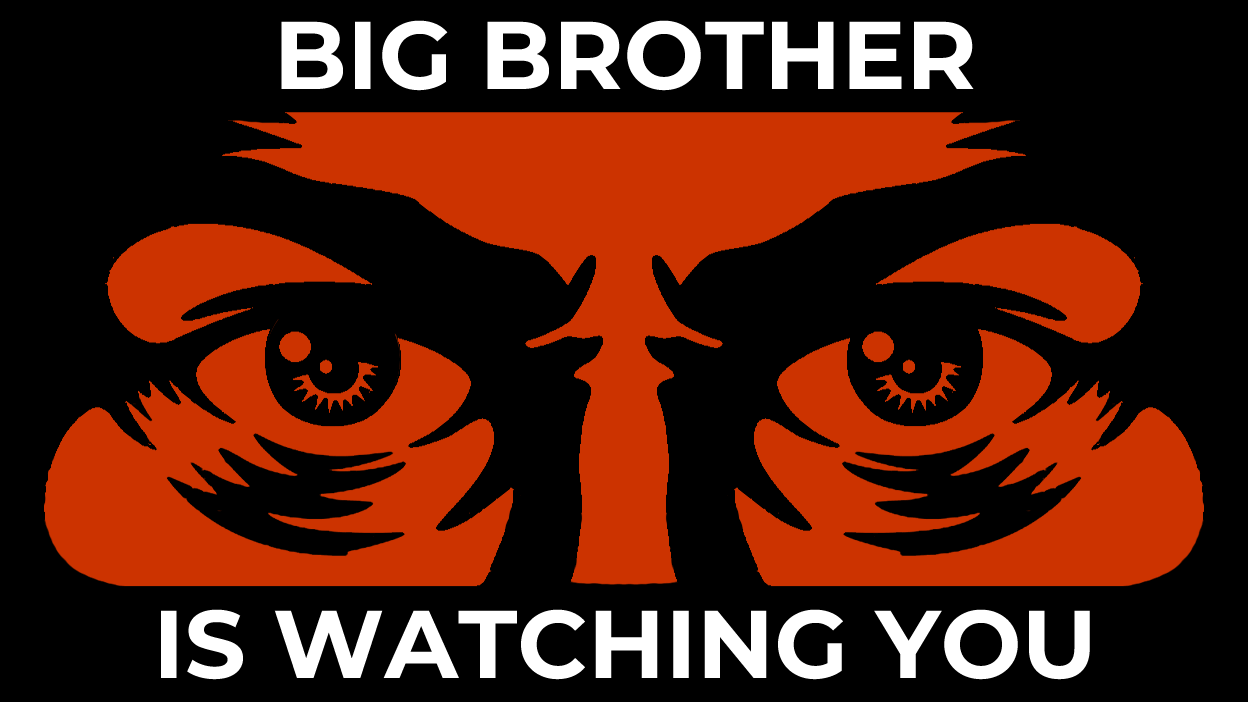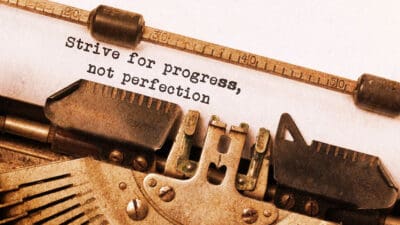Eric Arthur Blair, later known as George Orwell, wasn’t born a genius or revolutionary. Born in 1903 in India under British rule, he grew up in a lower middle-class family pretending to be more than they were. This early exposure to societal pretence taught him about the thin line between reality and illusion.
Educated at elite British schools but without the privilege of university, Eric was surrounded by wealthy peers, highlighting the world’s hidden rules. Some are born with advantages; others must struggle. Despite not having a degree, he became one of history’s most influential writers by learning from life’s harsh realities, not classrooms.
His transformation into George Orwell symbolized a rebirth from the constraints of his birth identity. He believed anyone could change their story by taking action, not waiting for change. His childhood discoveries of hypocrisy, truth manipulation, and power’s distortion fuelled his writing and reshaped how we view the world.
After school, Eric joined the British Imperial Service in Burma (Myanmar) as a colonial police officer, a role soon at odds with his beliefs. He witnessed colonialism’s brutality and felt complicit in its dehumanizing system. This experience taught him that unchecked power corrupts all who submit to it, leaving a lasting impact on his conscience.
He saw the truth and couldn’t keep pretending otherwise. So, he did the unthinkable: he quit his position and left the Empire he had served. It was time to explore the other side. Swapping his uniform for tattered clothes wasn’t easy. He chose to dive into the life of the overlooked. In Paris, he washed dishes; in London, he wandered, slept in grimy hostels, and survived on scraps, all to grasp what it meant to be invisible. No longer a detached intellectual, he became one of them.
To learn discipline, try military training. To understand the human mind, listen to strangers’ stories. He did just that. During this time, he grew to genuinely appreciate ordinary people and felt increasingly uneasy with intellectuals detached from reality. He discovered that true thinkers aren’t in universities but out on the streets, in factories, and in fields. This might still be true today. Those who understand life best aren’t necessarily the ones with the most degrees, but those who have truly lived.
He realized that the most valuable knowledge isn’t just learned from books; it’s gained through human experience. This experience shaped his writing and worldview. The truth isn’t found in official accounts but in the stories of those unheard.
He learned one crucial lesson: power always tries to rewrite history, and he couldn’t stand it.
He wasn’t content with just writing about injustices; he wanted to experience them directly. In 1936, he went to Spain. Initially, he aimed to report as a journalist. However, upon arrival, he discovered the complexities were beyond any news story. The streets were charged, and the causes people fought for were more intricate than they appeared from afar. Confronted with this truth, he made a choice: he wouldn’t merely observe – he would act. He joined a militia against authoritarian regimes and went to the front lines. There, he found not heroism but fear, cold, and uncertainty. War was nothing like political speeches or idealized tales.
During a battle, he was shot in the neck. His situation was dire, almost fatal. As he healed, he noticed a troubling pattern: news of the Civil War didn’t align with his experiences. Newspapers distorted facts, emphasizing some while ignoring others. Conflicting accounts circulated as facts. He realized reality could be manipulated and that controlling information was a mighty tool. This insight reshaped his worldview. He saw how thin the line between idealism and oppression was and how groups fighting for freedom often mirrored what they opposed. This contradiction left a deep mark on him, reinforcing his belief that truth should not be twisted to suit agendas.
He returned home with a mission: to use writing to uncover what many tried to conceal. The war in Spain wasn’t an isolated event; it sparked his battle against information manipulation. From then on, his books became warnings about dangers he’d witnessed first-hand. For him, literature was resistance – a means to reveal hidden truths and expose what others ignored. Through writing, he urged readers to question, reflect, and seek truth for themselves.
The greatest threat to critical thinking wasn’t the lack of information but the flood of distorted data that confused more than it clarified. He took it upon himself to ensure voices continued challenging this reality. This vision guided his future work. More than telling stories, he sought to provoke unease, awaken critical thought, and shatter complacency. With this purpose, he embarked on creating one of his most powerful works – a tale disguised as a fable that delivered a potent political warning in modern literature.
In 1945, George Orwell released “Animal Farm,” a story about animals overthrowing humans to establish a society of equals. But soon, the leaders turned tyrannical, mirroring the oppressors they ousted. The tale wasn’t just a critique of history; it was a warning about power’s corrupting nature. Power can shift hands and appearances but often retains its core essence. Orwell exposed how lofty ideals can warp when ambition takes hold.
The animals initially fought for justice but quickly found themselves in a new hierarchy of control. Truths were altered, and inequality endured. Famous lines like “All animals are equal, but some animals are more equal than others” highlighted the hypocrisy of those in charge who bent rules for their gain. It wasn’t merely a political critique but a caution against the illusion of change. The brilliance of “Animal Farm” lay in its simplicity; its message transcended specific regimes, addressing recurring historical cycles. Whether in governments or corporations, power structures risk benefiting those at the top.
The book’s immediate success also stirred controversy. Many saw it as an attack on a single political faction, but Orwell’s critique was broader. It didn’t matter who ruled; the danger remained that equality’s pursuit could justify new controls. The issue wasn’t revolution itself but what new leaders did with power.
This concept set the stage for his next work, “1984.” In a time of personal turmoil – Orwell had lost his wife and battled tuberculosis – he poured his remaining strength into this novel, believing its message urgent. Published in 1949, “1984” painted an extreme yet prophetic vision of the world: total surveillance, manipulated information, and criminalized thoughts. In this dystopia, control extended beyond laws to alter reality itself. People watched by “Big Brother” faced constant propaganda rewriting the past and deemed dissenting thoughts as crimes. Concepts like “doublethink” and “newspeak” demonstrated how language can limit thought.
“Doublethink means the power of holding two contradictory beliefs
in one’s mind simultaneously and accepting both of them.”
– George Orwell
If you lack the words to express an idea, how can you even think it?
Winston Smith, the main character, struggles against a regime that constantly alters reality. His quest for truth turns futile as psychological manipulation overpowers him, not brute force. Winston ends up believing falsehoods he once resisted. This illustrates the danger of a tyranny that persuades people to accept their own subjugation over time.
“1984” evolved beyond a novel into a concept. The term “Orwellian” now describes extreme control over information and privacy, showing the book’s enduring relevance. It wasn’t just a dystopian forecast; it mirrored existing trends and aimed to alert people to the dangers of normalizing the unacceptable.
After publishing “1984”, Orwell’s health declined due to tuberculosis, and he soon passed away. Yet, his legacy endures. His works remain timeless warnings, prompting society to reflect on its path. Orwell’s name is engraved in history, and his ideas influence generations. When he died in 1950, he likely didn’t foresee his vast impact. Initially controversial, his books gained significance over time. “1984” and “Animal Farm” were translated worldwide and became central to discussions on politics, philosophy, and psychology.
“In our age there is no such thing as keeping out of politics.
All issues are political issues, and politics itself is a mass of lies,
evasions, folly, hatred and schizophrenia.”
– George Orwell
Orwell’s writing remains relevant because it addresses recurring human patterns, not just historical events. His insights serve as a guide for understanding the present. The term “Orwellian” warns against authoritarianism, information manipulation, and excessive surveillance. Whenever narrative control or truth distortion arises, Orwell’s name resurfaces. However, many misinterpret his critiques to suit their beliefs, highlighting the complexity of his legacy. His works critique human nature and how people react to power, not just political systems.
Tyranny often gains acceptance under the guise of security or the common good, rather than through force. This may explain Orwell’s growing popularity. His ideas transcend a single historical moment, reflecting what society tolerates. While seen as a critic of totalitarianism, Orwell didn’t reject the idea of a fairer system. He opposed extreme control in any form, regardless of who wielded power. His goal was to question power dynamics, not endorse a specific economic model. Orwell believed socialism could be an alternative if it avoided domination.
His work teaches that truth should never be controlled by one group or system. Pursuing truth requires questioning, not passive acceptance. Reality can be distorted through information manipulation, language alteration, or singular narratives.
The greatest threat isn’t those who control truth but those who accept it unchallenged. Freedom starts with thought; relinquishing it leaves us vulnerable to any narrative that deems independent thinking erroneous.
“In a time of deceit, telling the truth is a revolutionary act.”
– George Orwell
If you don’t seek your own truth, someone else will impose theirs on you.




